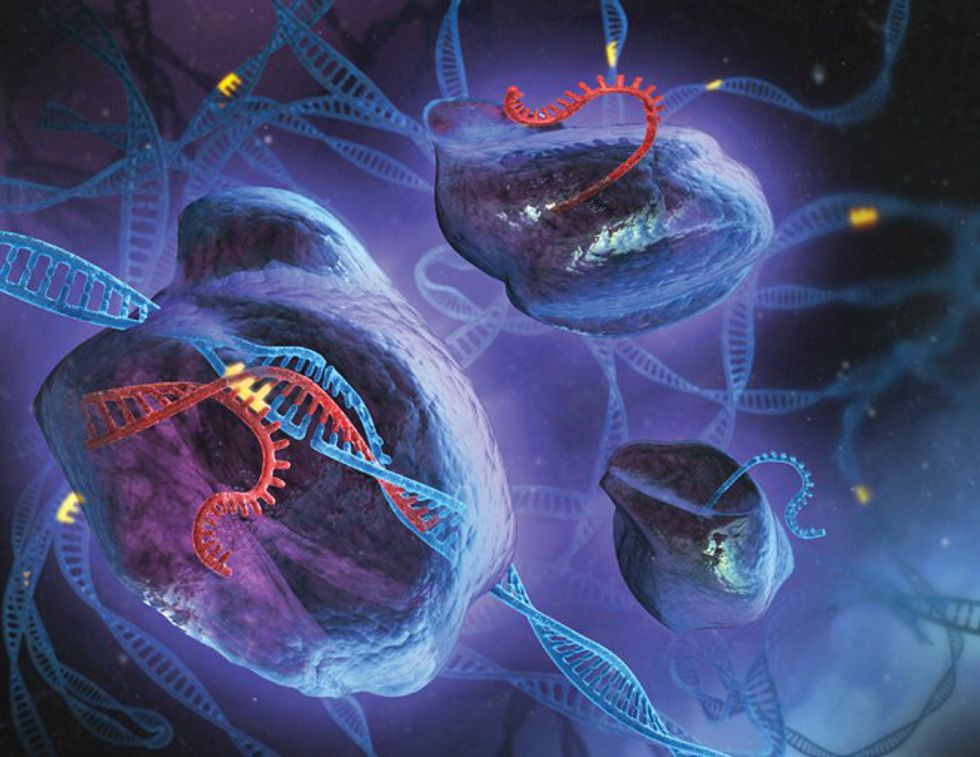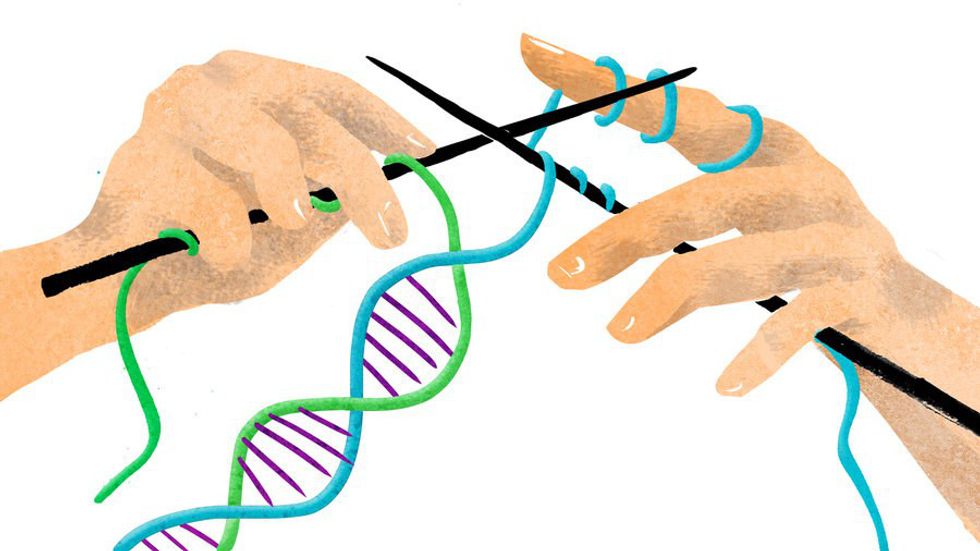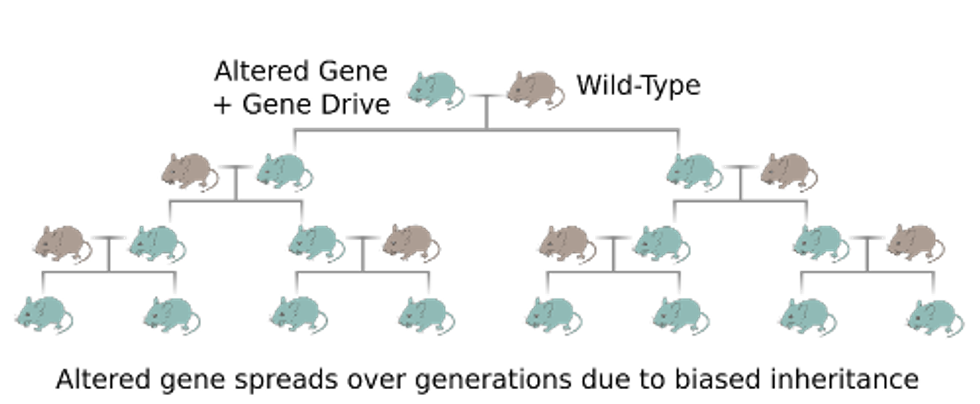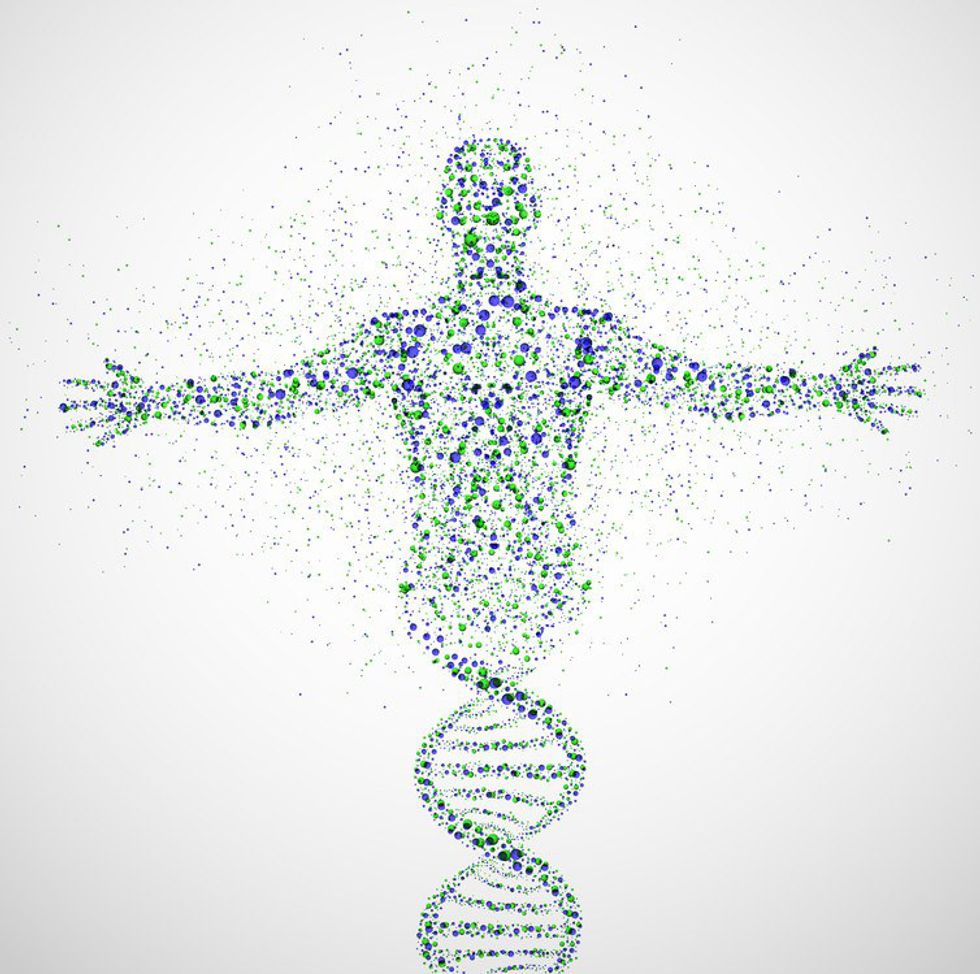In early 2013 Feng Zhang, Broad Institute of MIT and Harvard, became the first person to successfully harness CRISPR for genome editing, and since then it has taken off. People now look to CRISPR as the solution to most of the world's problems: fighting genetic diseases, stopping the spread of contagious diseases (such as preventing mosquitoes from carrying malaria), and making everyone literally physical super humans. Genetic engineering, or genome editing, if done correctly can have an incredible impact on the world, and it now has developed the tool to do so: CRISPR.
CRISPR stands for “clustered regularly inter spaced short palindromic repeats.” As far back as the 1980's scientists discovered that various bacteria had patches of uniform DNA sequences that would be repeated over and over again, hence "clustered...repeats". Scientists eventually discovered that the sequences matched the DNA of viruses that attack the bacteria, which have CRISPR. It turns out that the bacteria kept copies of the virus so it could identify when, and by what, it is attacked. Thus, it can call in a Cas (CRISPR-associated protein), most commonly Cas9, to slice up the DNA of the virus. Additionally, it knows where/ what DNA to attack because it has the copies.
Scientists are now able to use this process as a guided missile to cut out DNA they do not like or want to replace. They can replace the DNA that has been cut by feeding it another strand of DNA, one that they designed. If they can design an organism’s DNA, then they can design that organism's: eye color, height, or even better immune systems.
In 2014, Kevin M. Esvelt, the Assistant professor at MIT's Media Lab and leader of Sculpting Evolution Group, outlined a way for CRISPR to be used to change an entire species. As long as they are a sexually reproducing species, CRISPR has the ability to implant itself into the offspring of the organism that it originally inhabited, and then from there the CRISPR can be used to change the offspring’s DNA to have the desired trait/change. This process can change some of the most fundamental rules of genetics, rules based off research by the father of genetics, Mendeleev, which analyze the probability of a trait being passed on.
Now there is no probability to it, because the offspring inherits the guiding RNA and Cas9 to alter the other half of the chromosomes from the non modified parent, therefore it and all its offspring will have the desired trait. This process can repeat through infinite generations and eventually change the entire species.
Scientists are now currently working with mosquitoes, and have figured out how to change the DNA of a mosquito to not spread malaria. Through CRISPR they can change a couple mosquitoes, and then release them into the wild to change the next generation of mosquitoes. The great thing is, that this will happen quickly and effectively because female mosquitoes lay around 100-200 eggs (all containing CRISPR). The World Health Organization has recently published estimates that “between 300 and 500 million cases of malaria occur each year -- and a child dies from malaria every 30 seconds.” From this information, it seems that CRISPR may be the cure.
The way CRISPR could be used to change physical attributes, or prevent genetic diseases, is a little more simple. They map out the bit of your DNA that will make you have that attribute disease, use CRISPR to cut that bit out, and then plug in DNA that fits and does not have that attribute or has a more favored one.
Now that the technology is basically there and almost ready to be implemented, there is the moral dilemma that follows with this power. With the mosquitoes, it is case where at first glance the potential benefits vastly outweigh the potential consequences. But once it gets to more complicated organisms or ecosystems we will have the responsibility to discuss what we do, and do not, have the right to use. We will probably have to set up regulations to make sure the right people have the power and use it properly. If a team wants to get rid of an invasive species in a certain area and it ends up eliminating the entire species, a scarily realistic possibility, that may have catastrophic results on the ecosystem. We will also have to worry about equality among people. The top 1% could suddenly have the power to be perfect super humans, which is scarily realistic. All these problems will have to be dealt with, but that is a problem for another time. In the mean time we have a new exciting technology that can solve half the worlds problems.

























